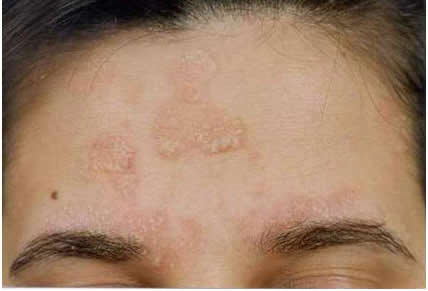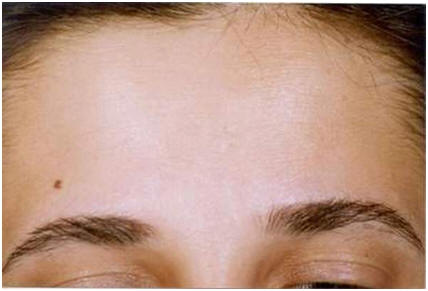ASQUAM lotion for treatments of seborrhea and acne vulgaris
- Etiopathogenesis
- Auto somatic dominant inherit
- Hormonal influence (androgen in puberty, estrogen during PMS)
- Emotional neurogenesis
- Nutritional (spicy and greasy food, alcohol)
- Microorganisms and their degradable products (Pityrosporum ovale, Demodex folliculorum, Streptococcus, Candida pec.)
- Medications
+ Androgenic, synthetic, corticosteroids, tranquilizers
Cytostatic, synthetic antiandrogens and estrogens, etretinate (13 cis retinoic acid)
Pathophysiology
Excessive sebum secretion
- Keratosis Pilaris (Follicular keratosis)
- Comedones ( hair is not visible)
- Swelled sebaceous glands
- Secondary fungal and bacterial infection
CLINICAL SYMPTOMS
- Chronic repetitive illness in the seborrheic areas: hairline, face, eye brows, Nasolabial folds, retroauricular, around the belly button, presternal, interscapular, inguinal)
- Pinkreddish areas covered with white yellowish scabs in different sizes binding together, accompanied by more or less greasy or dry peeling
- Mild itching
Treatments for SEBORRHEA
- Pyrithione zinc
- Resorcinol Salicylic acid
- Coal tar
- Juniperus communis
- Vitamin B6
- Diet (spices, alcohol, greasy food)
- Sulfur
- ASQUAM lotion
Formula:
- Urea
- Propolis
- extract SpissChamomillae
- extract Ol. Calenduale. Ol. Anisi
- Menthol J
- uniperus comunis/YlangYlang
- Alcohol
- Face and body Seborrhea
Use it twice a day on dry skin
- Seborrheic dermatitis along the hairline
- Use it once or twice a day in the course of 2 days
- Wash your hair with shampoo on the third day
- ASQUAM Lotion for treating acne
- For acne comedonica use only the lotion
- for acne papulopustuloza and nodulocistica use the lotion after applying the ProAcne cream or Propolis Forte 25%

Before

After
